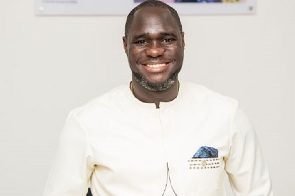...As Gov’t, Analysts Clash
BY NANA KOFI KORANTENG
As Ghana’s first major commercial oil production date draws closer, the debate over the appropriateness or otherwise of policies to ensure that Ghanaians derived the maximum benefits from the country’s oil and gas resource has been on the ascendancy, amidst closer scrutiny of the policy framework by analysts.
While some policy analysts argue that an eighty percent target over a 10-year period for employment as part of the local content policy is over ambitious and unattainable, Government thinks otherwise.
One of those who see the 80% local content in employment as unrealistic is a Senior Lecturer at the Department of Earth Science of the University of Ghana, Dr. Thomas Akabzaa, who has described government’s 2020 target to be only a dream that is not likely to be achieved.
“As of now we have not developed any potential to contribute effectively to that and it will take a considerable amount of time for us to develop those experiences,” Dr. Akabzaa stated, adding that it would take a very compelling local content legislation to achieve that.
He emphasized that “With only a draft policy now, it will take some time to develop that into legislation, beyond which we also need institutional and economic players that will actively participate in the whole process and that is a very daunting task that we need to overcome”.
Dr. Akabzaa, who was speaking to The Business Analyst at the sidelines of a workshop for a section of the media, to build capacity in oil and gas issues from a gender perspective, argued further that such a high level of local content does not exist even from the places of best industry practices.
“To be realistic, other countries that have done it, even in Norway that we normally use as the best industry practice example, the level of local content after nearly thirty years of being in the industry is less than seventy percent.
“In the case of Nigeria it is under thirty five (percent), so it is not likely that we can have such a very ambitious target within ten years, hence it being a dream rather than a reality,” he stressed.
Dr. Akabzaa expressed skepticism about ever achieving the local content targets within the lifespan of the Jubilee Field, adding that “It is nice to dream big but when it becomes impossible then it is meaningless and certainly unrealistic”.
However, reacting to the skeptics, the Ministry of Energy has told The Business Analyst that the targets are very much attainable.
According to Mr. Edward Adombire Bawa, of the Public Relations Office of the Ministry, international oil companies (IOCs) under the new policy framework are required to prepare and implement plans and programmes for the training of Ghanaians in all job classifications in all aspects of petroleum activities.
He said IOCs shall transfer technological know-how and skill as well as establish facilities for technical work and are required under the policy to ensure “that qualified Ghanaians are employed as far as possible in all aspects of their operations.”
Mr. Bawa said it is towards this end, that an “oil and gas business development fund will be established to support education, training and Research and Development, sources of which fund will be contributions from licensed operators, oil and gas revenue and grants from development partners.”
According to Mr. Bawa, Government recognized that policy framework without legislation to back it would make enforcement difficult, hence plans to send a subsidiary legislation on the local content immediately the Petroleum (Exploration and Production) Bill 2010 is passed into law.”
He said a consultant hired to draft the law has completed the job and the document would soon be presented to cabinet for consideration.
On the comparisons with other countries, Mr. Bawa disclosed that Norway became the pace-setters when they achieved 75% local content in 1994.
“If Norway did this, what prevents Ghana from setting higher targets and working to achieve that,” he queried, adding that “Nigeria isn’t a good example to follow.”
He said the U.S.A. decided to go to the moon, and in 10 years they sent the first man to space. “Why can’t we also dream big and work assiduously towards achieving that dream,” Mr. Bawa quizzed.
Explaining further the objects of the policy, Mr. Bawa said every project, operation or transaction must have a local content plan and that “Government shall give first consideration to Ghanaian independent operators in the award of oil blocks, oil fields licenses, and oil lifting licenses.”
IOCs, under the new policy must provide for the participation of a Ghanaian citizen, with at least 5% interest, in exploration and production and bids for oil blocks containing the highest level of Ghanaian content shall be given priority.
Also as a boost for local content, foreign companies that will provide goods and services for oil companies shall operate from Ghana and partner with a Ghanaian-owned company.
Commenting on the entire petroleum bill, Dr Thomas Akabzaa observed that the bill is quite ambiguous on “who is the overall controller of the industry and whether it is the Ministry of Energy, GNPC or that there should be an independent Petroleum Regulatory Authority.”
He said it appeared that issue was a very sticky point for the crafters of the bill as well, which explains why they did not clearly define that.
General News of Friday, 17 September 2010
Source: Business Analyst
















